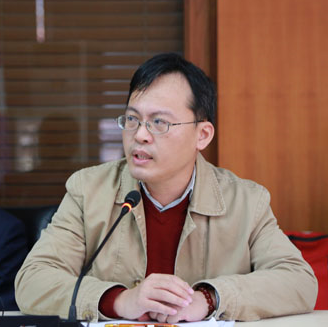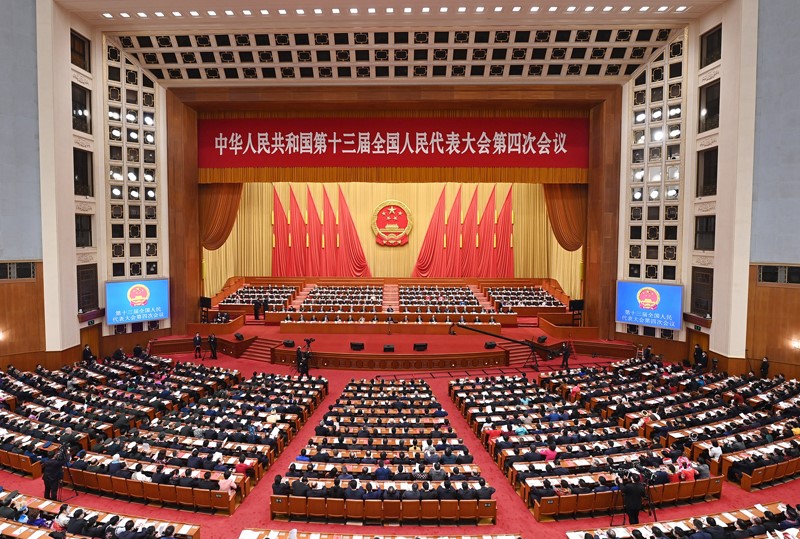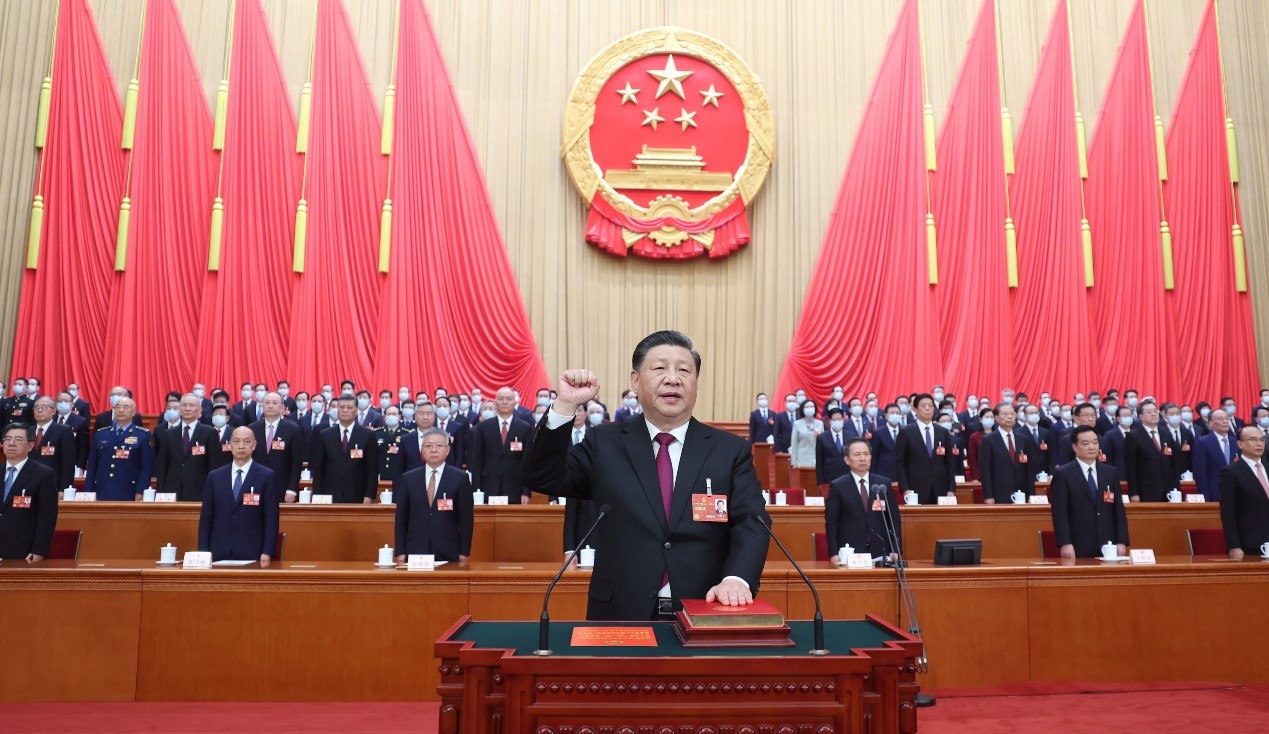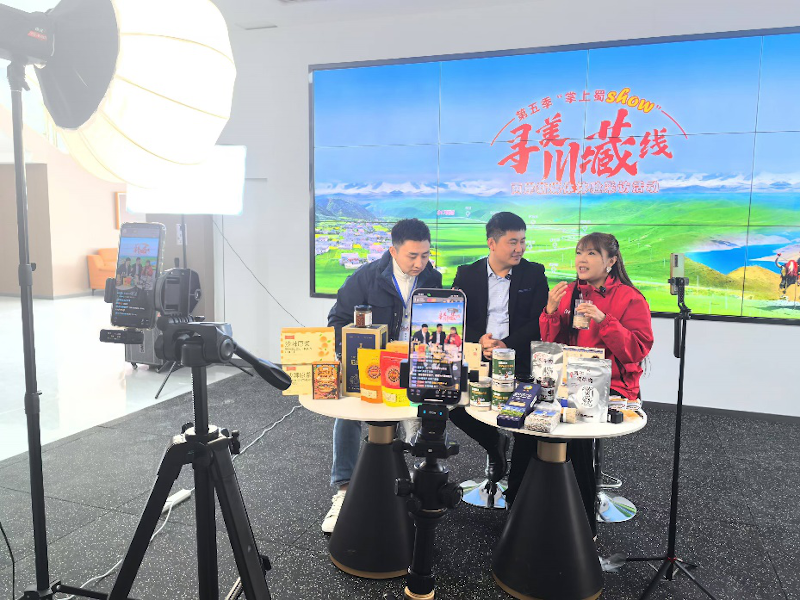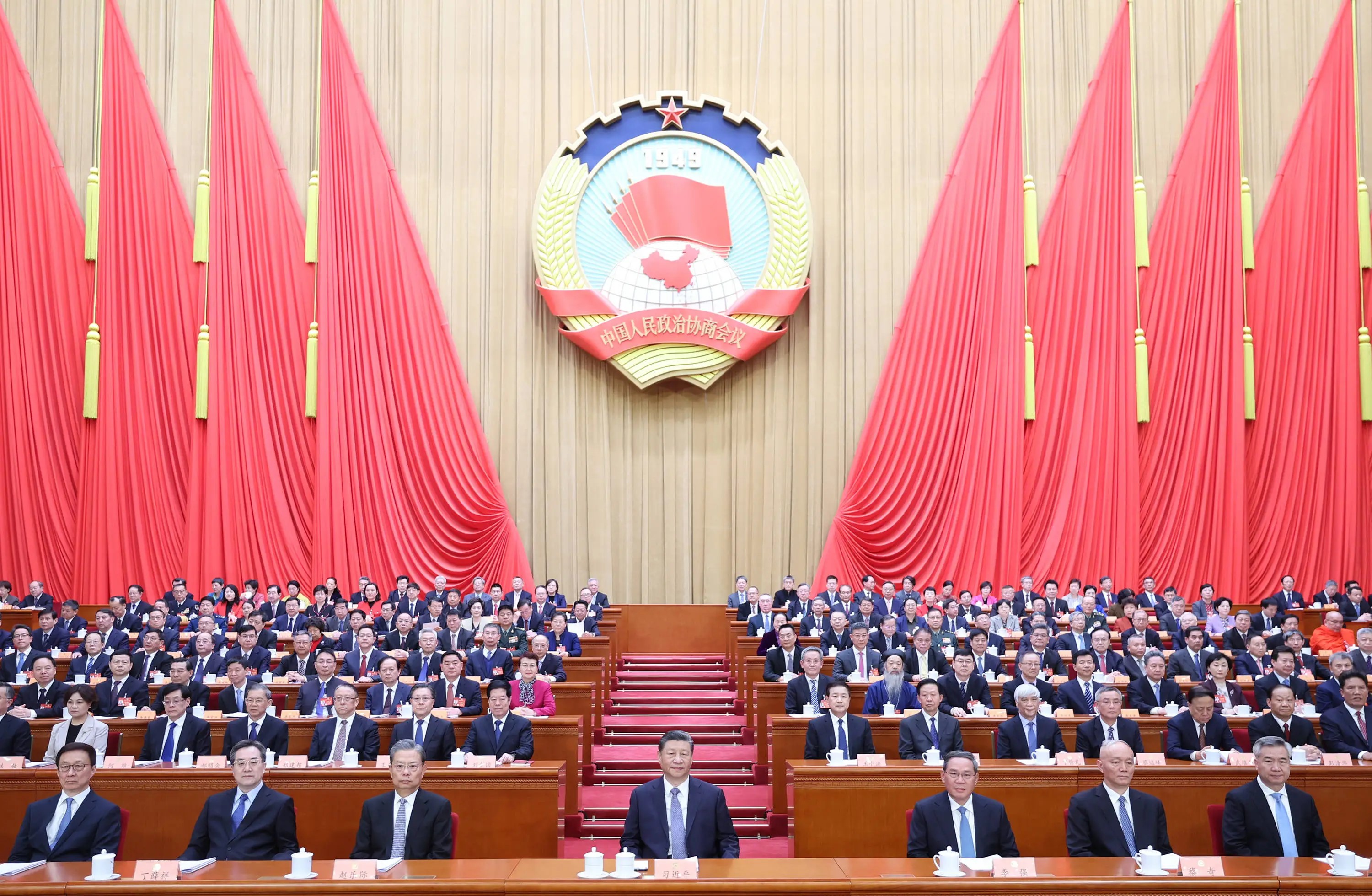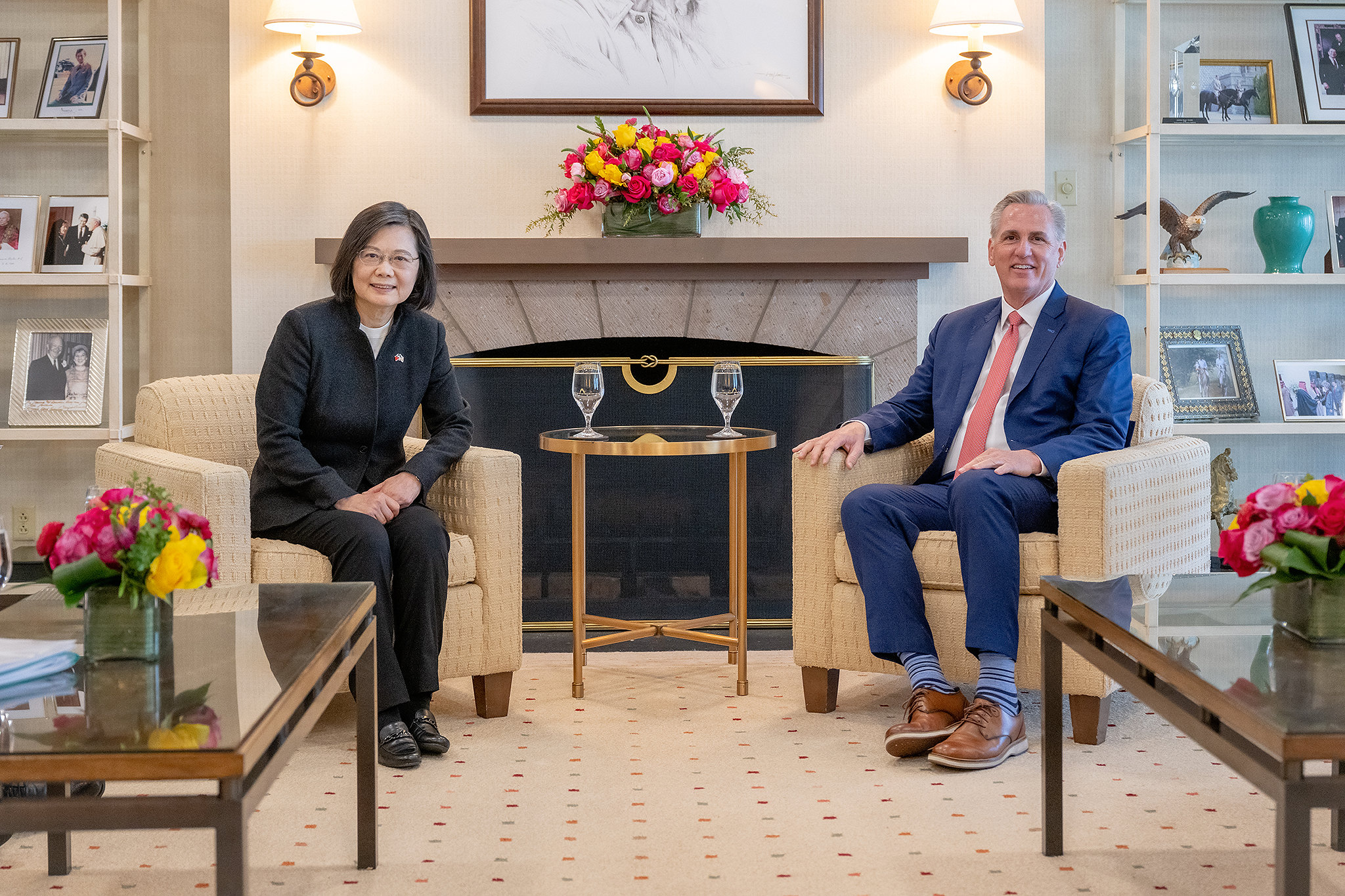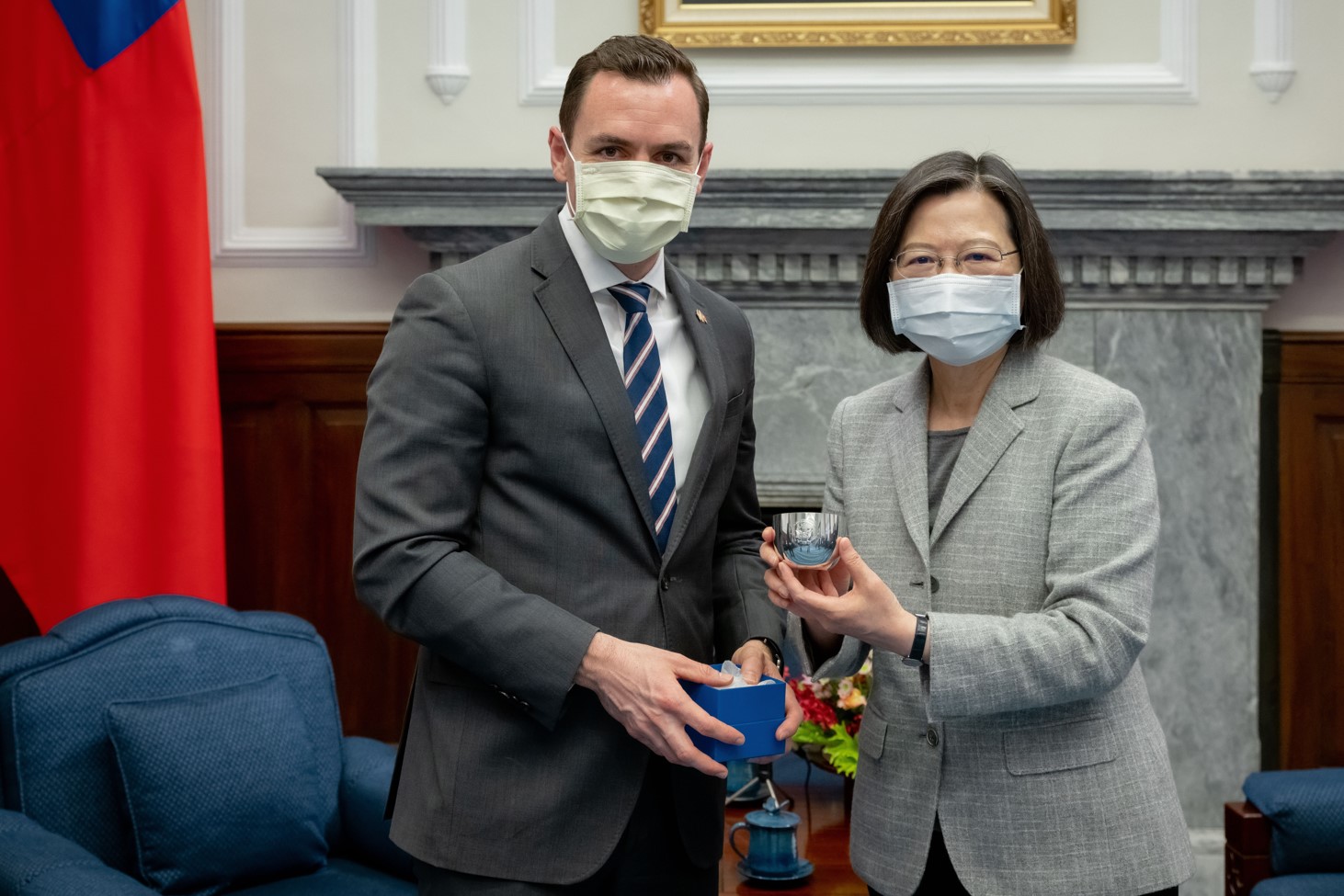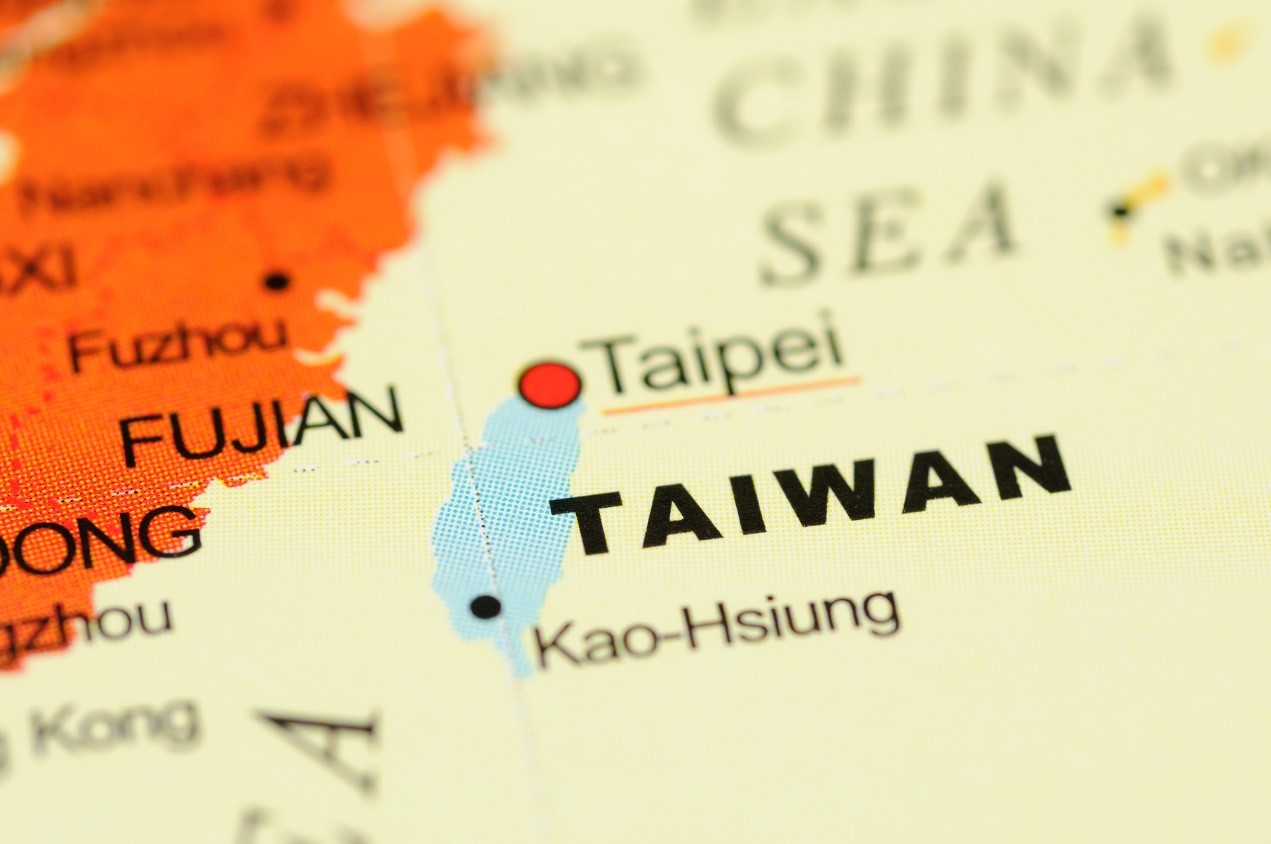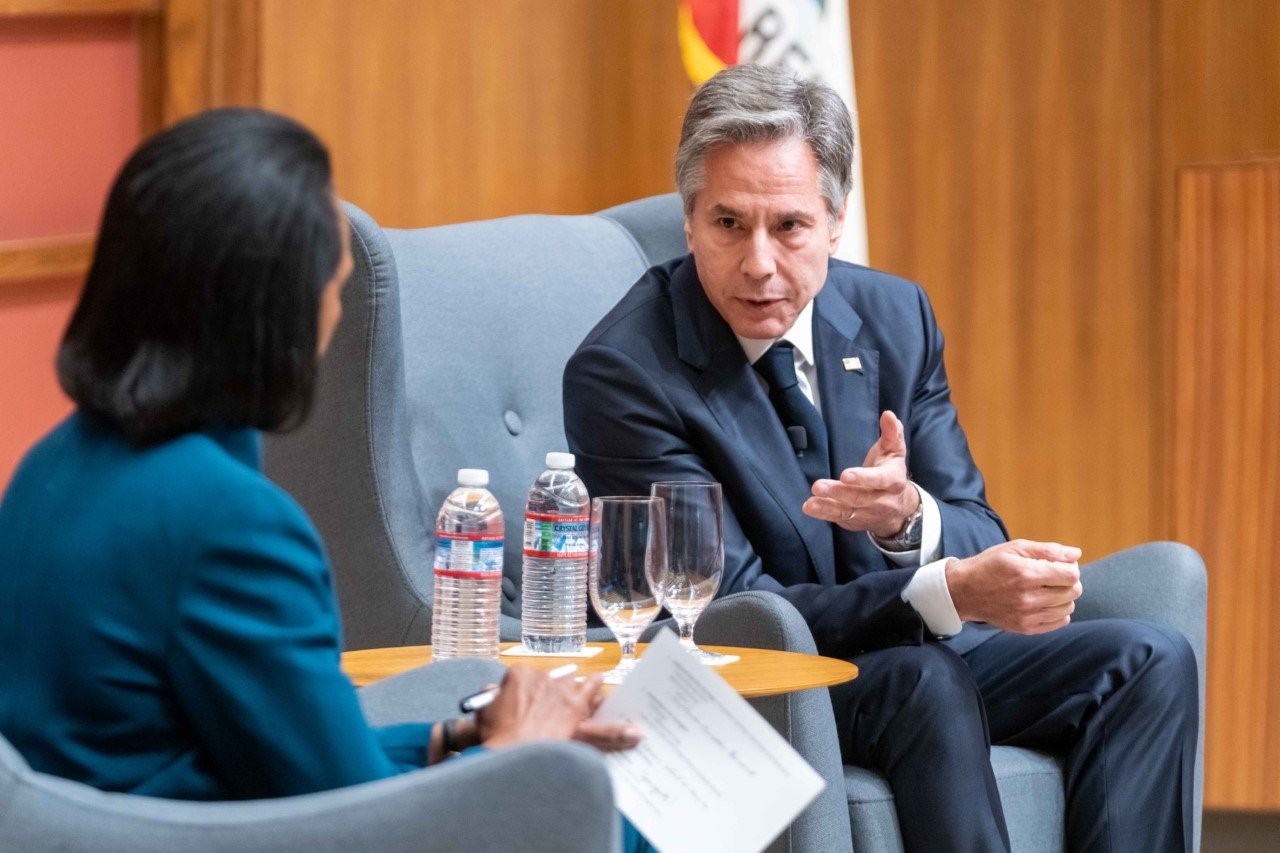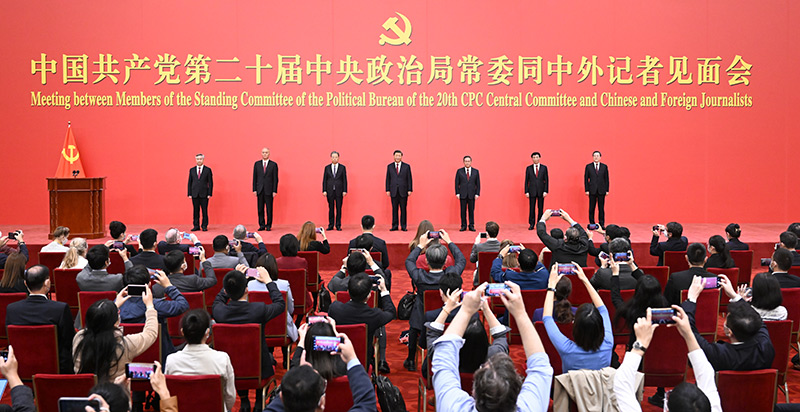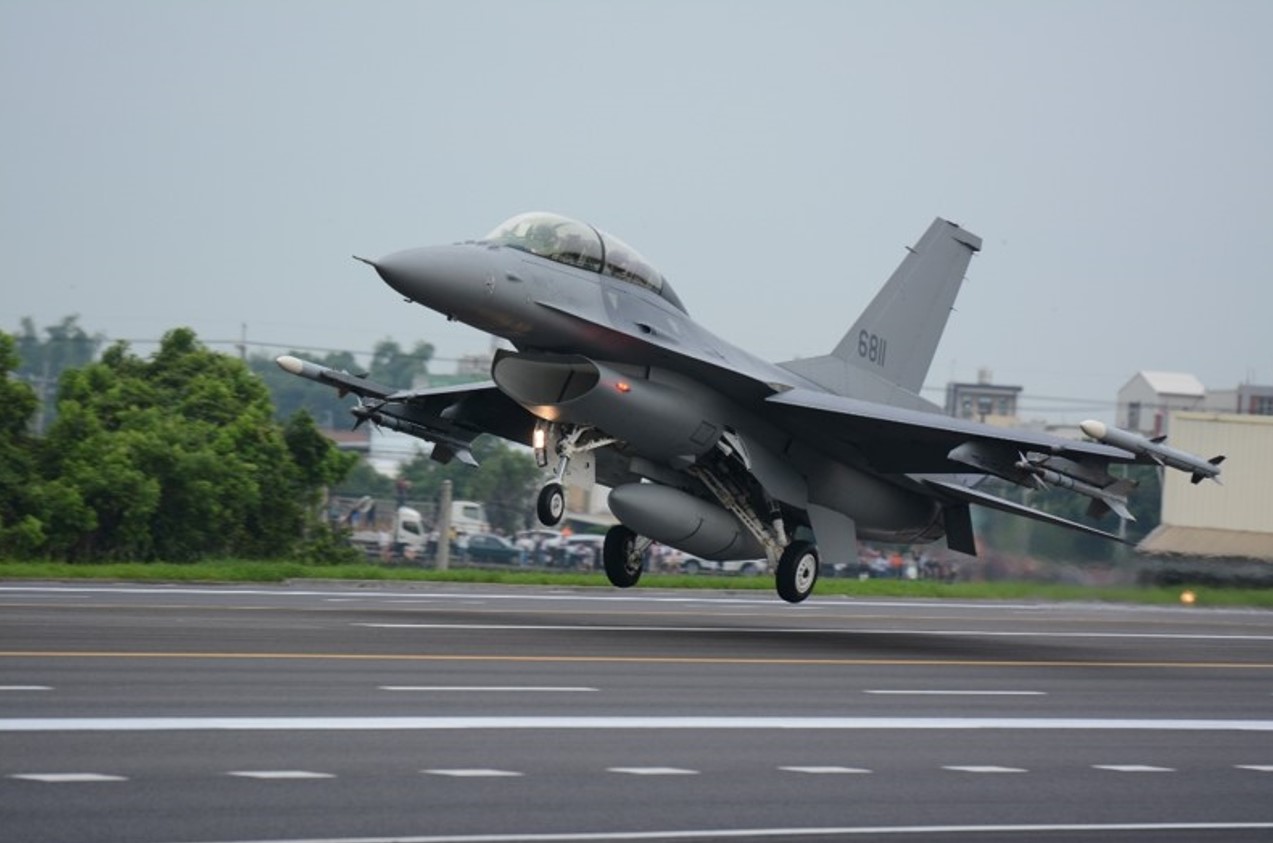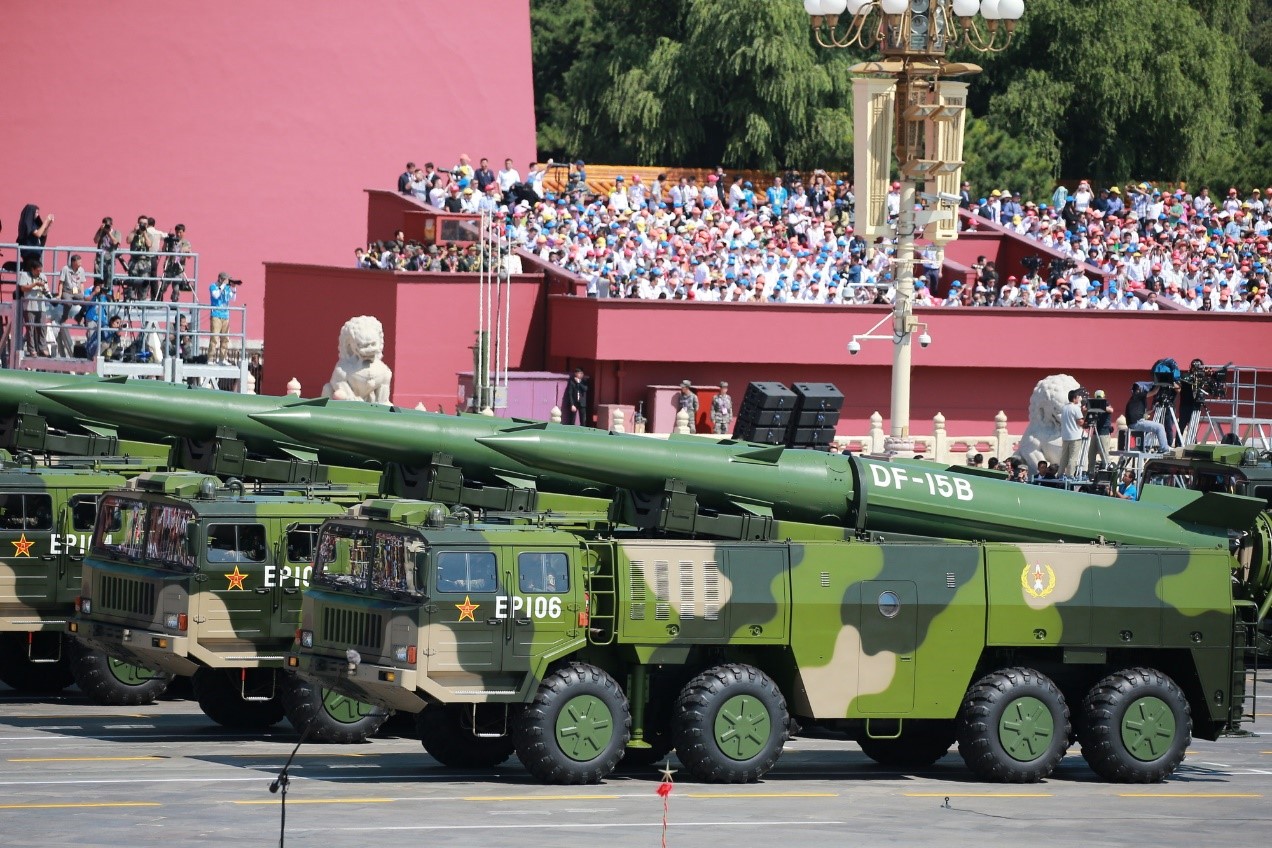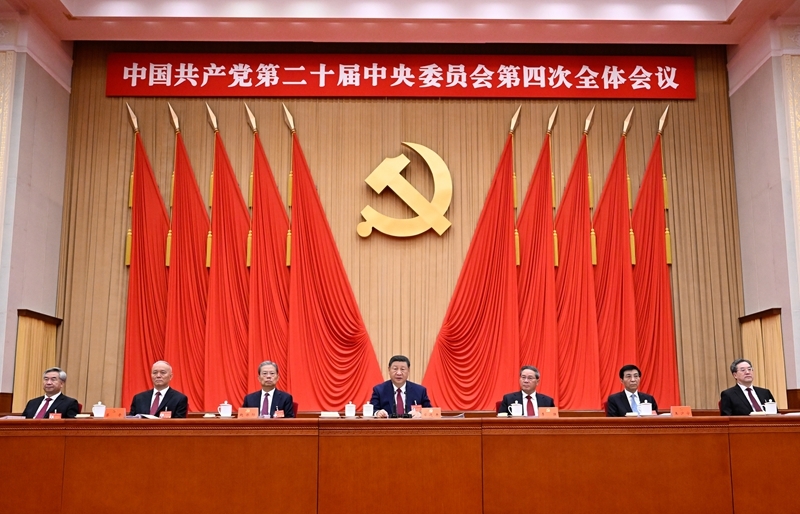The discussion of Taiwanese affairs at the Two Sessions was somewhat deemphasized compared to previous years. The next stages of Taiwanese policy will probably not have specific deployments or formulations until Xi Jinping is confirmed as continuing in his post as General Secretary at the 20th National Party Congress. Picture source: 金良快, March 11, 2022, 《中國政府網》, http://big5.www.gov.cn/gate/big5/www.gov.cn/zhuanti/2021qglh/index.htm
Prospects & Perspectives 2022 No. 14
Analysis of China’s Strategy Toward Taiwan After the Two Sessions
By Wen-hsuan Tsai
March 17, 2022
China’s Two Sessions, namely the meetings of the National People’s Congress (NPC) and the Chinese People’s Political Consultative Conference (CPPCC), were held in March 2022. The theme of the Two Sessions was “Around the successful convening of the 20th National Congress of the Chinese Communist Party (CCP) and strengthening the national public’s support for the Party.” The title reflects the notion that the two sessions are just a rehearsal in preparation for the upcoming 20th National Party Congress to be held at the end of 2022. Moreover, the theme conveys support for Xi Jinping’s continuation in the post of General Secretary.
Wang Yang, chairman of the CPPCC, delivered a work report on March 4. In the section on Taiwanese affairs, Wang’s report mainly emphasized the necessity to work hard to strengthen the unity of the Chinese nation. It also mentioned several Taiwan-related projects in 2021, such as the 110th anniversary of the 1911 Revolution, the 13th Straits Forum, and the 4th Cross-Strait Grassroots Governance Forum. However, the report does not express the specific goals of cross-Strait exchanges in 2022; it only abstractly mentions the need to strengthen the mission and responsibility of being a “descendant of the Chinese nation.” In other words, the CPPCC’s report this time focuses on strengthening the CCP’s internal rule in advance of the upcoming 20th National Party Congress.
Wang’s work report includes another noteworthy point. He mentioned the need to “strengthen our mission,” which seems to be related to “building a modern socialist country and realizing the Chinese dream of the great rejuvenation of the Chinese nation,” which was proposed by Xi previously. This shows that the CCP’s thinking on the united front, including the internal united front and Taiwanese affairs, hopes to be connected with the country’s overall strategic development. In other words, the future united front work regarding Taiwan will be deployed by the United Front Work Department or the Taiwan Affairs Office system. It may also be embedded in the national development strategy through the overall arrangement and top-level design of the Central Committee for Comprehensively Deepening Reform, to develop and promote policies related to Taiwan affairs. For example, in response to the need for innovative high-tech talent, China will actively seek to absorb relevant Taiwanese capital and engineers to connect the united front work with Taiwan and national development.
In his “Government Work Report” on March 5, Premier Li Keqiang of the State Council issued also mentioning some policies or positions on Taiwanese affairs. Li’s report states the need to “continue to fully, accurately and unswervingly implement ‘one country, two systems’ and adhere to the one-China principle and the ‘1992 Consensus.’” He added opposing Taiwanese independence activities to work towards China’s reunification and create “the glorious cause of national rejuvenation.” In fact, these remarks are merely a repetition of some the CCP’s past declarations and do not have much new meaning. In this regard, Taiwan’s Mainland Affairs Council has made it clear that if the Beijing authorities cannot face the fact that the two sides of the Taiwan Strait are divided, the CCP’s Taiwanese policy and united front manipulation will not have any positive effect.
In the recent war between Russia and Ukraine, many observers believe that Taiwan may be the next Ukraine, with China playing the role of Russia. Obviously, China did not discuss this specific issue at the Two Sessions, but it kept repeating its past policies and guidelines for Taiwanese affairs. Hence, the Chinese government is likely still vacillating between supporting Russia’s military operations and Ukraine’s independence, thereby showing ambiguity in China’s foreign policy. However, in any case, China seems reluctant to compare Taiwan with Ukraine because Taiwan, according to Beijing, is a Chinese territory. In other words, China will remain neutral and cool concerning foreign affairs that may interfere with its Taiwanese policy. Moreover, it will continue to handle cross-Strait relations based on the so-called “one China” stance.
Overall, from the Two Sessions this year, we can observe that the policy toward Taiwan is still generally in line with the direction established previously. Of course, in these meetings, some terms of Taiwanese policy have been strengthened. For example, last year, officials used the words “high vigilance and resolute containment” for Taiwan’s independence, but this year it was changed to “resolutely opposed,” which seems to be more powerful. Nevertheless, besides these subtle changes, the main line of Taiwanese policy remains the same as in the past.
The CPPCC meeting did not mention the deployment of work in Taiwan, but this does not seem to mean that the CCP’s policy toward Taiwan will change. Wang Yang mentioned the need to strengthen the unity and struggle of the “descendants of the Chinese nation,” which of course includes “Taiwanese compatriots.” In the reports from the Two Sessions, the language and length of Taiwanese affairs were downplayed, and the main purpose was to deepen the so-called goal of “the successful convening of the 20th National Party Congress and strengthening the national public’s support for the Party.” For example, the government work report elaborates more on internal affairs, such as innovation, rural governance, environmental protection, and strengthening economic development. These issues may be the ones that the Chinese public is currently more concerned about. In other words, the main purpose of the Two Sessions’ report this year is to stabilize the support of the Chinese people for the CCP and Xi Jinping.
To summarize, the discussion of Taiwanese affairs at the Two Sessions was somewhat deemphasized compared to previous years. Moreover, their content only repeats some principles or policies that have already been mentioned by the CCP, and there are few new ideas. This is because this year’s Two Sessions focus more on the internal united front and propaganda work. Regarding their work on Taiwan, the Beijing authorities value stability over innovation. However, this stability only reiterates some official principles or “red lines.” The next stages of Taiwanese policy will probably not have specific deployments or formulations until Xi Jinping is confirmed as continuing in his post as General Secretary at the 20th National Party Congress.
(Dr. Tsai is Research Fellow, Institute of Political Science, Academia Sinica)

